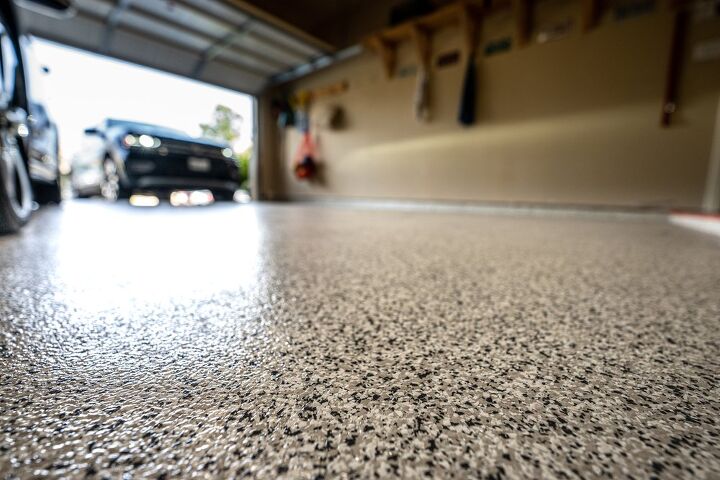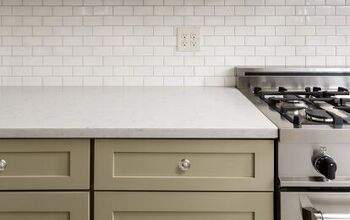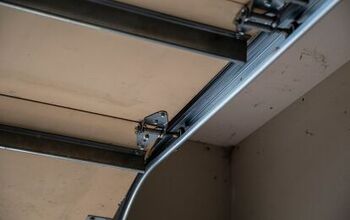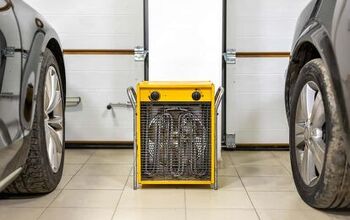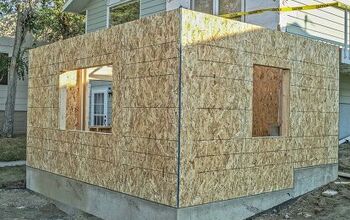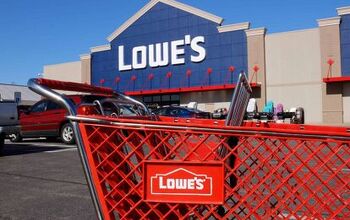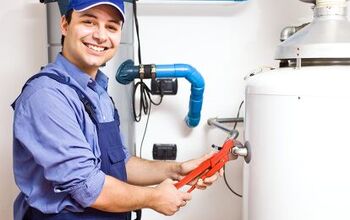Garage Floor Tiles Vs. Epoxy: Which One Is Better?

For many guys out there, their garage isn’t just a garage. It’s their Man Cave, or perhaps, their project place. Many a man spends his free time in the garage, drinking a cold beer and working on his latest project. If you want to make your garage a better place to be, you need good flooring. Floor tile and epoxy layers are both popular, but which one is right for you?
Epoxy is generally considered to be the best because it offers a shiny, seamless, and liquid-resistant outcome. It can even be stylized to your liking. They are a tight seal. However, tiled floors are better for people who want to boost the look of their flooring and want a material that’s easier to install.
Both of these flooring options have their own perks and pitfalls. If you recently decided that you want to jazz up your home’s garage, then you should be aware of these two flooring options.
Do You Need Flooring or Tile Installation?
Get free, zero-commitment quotes from pro contractors near you.

Before We Begin: Understanding Each Type At A Glance
Epoxy and garage floor tile are both popular options for garage flooring, but they are not similar at all. Before we begin, let’s discuss both.
What Is Garage Floor Tiling?
Garage floor tiling is primarily composed of smooth, interlocking tiles that are made to “click” into place. The tiles can be rigid or soft, and are often cut and glued together over concrete. These tiles can have a wide range of different looks, from a slick diamond plate to a soft PVC. They can be very durable, but you need to choose the right tiling for your needs to make sure you get the right outcome.
What Is Epoxy?
Epoxy is a two-part hard resin system that is designed to be a durable coating for use over concrete. It’s a series of polymers that, when poured and mixed, will bond with one another as well as the floor below. It’s a gorgeous look that offers wall-to-wall coverage and has a superb glossy shine.
Garage Floor Tile vs. Epoxy: Installation Expectations
Now that we have a better idea of what each type of flooring is, let’s talk about how these two styles stack up against one another when it comes to installation…
- Tiles are way easier to install, period. As long as you have a relatively level concrete floor, you can install tiles pretty effortlessly. With epoxy, you have to sand down your concrete, which can take a lot longer than regular tiling.
- Epoxy’s two-step process is easy to mess up compared to tiling. There are a lot of ways things can go south with epoxy. Having experienced installers matters.
- Floor tiles are generally cheaper. There are exceptions to the rule, but this is the basic truth. TrueLock and similar high-end tiles approach the cost of epoxy, though.
- When you’re using floor tiling, you need to make sure to use the right one. Floor tiling is not a “one size fits all” thing. Some, such as diamond, are ideal for automotive use. Others, such as PVC, are better for construction or woodworking since PVC will stain under tire pressure.
Garage Floor Tile vs. Epoxy: Cleaning And Maintenance Issues
When it comes to cleaning, things tend to be virtually identical in terms of how you keep things tidy. However, there are still some minor differences that you may need to be aware of.
- Epoxy is the more durable of the two. This is just the truth. Sorry, not sorry. While tiling can be great, it tends to scuff faster and may also need replacement tiles sooner than what you may see with epoxy. Moreover, certain types of tile will also get wrecked quickly if the wrong cleaning agent is used.
- You will probably need to replace tiles on a regular-ish basis. Though they are often made to withstand car-sized weights, tiles can crack and chip. Epoxy can chip if it’s being heavily abused, but it’s not as prone to cracks as tiling by a long shot.
- Interlocking tiles are far less likely to be a permanent fixture. Epoxy can easily last for decades when regularly mopped and swept up. Tiles usually last from five to 15 years, depending on the quality and what you may mean by “lasting.”
- Tiles are harder to clean than epoxy. Mopping doesn’t always work with tiles. You may need to vacuum or get a specialty cleaner to keep them pristine. With epoxy, a quick sweep and a mop are all you need.
Garage Floor Tile vs. Epoxy: Aesthetics
The cool thing about both types of garage flooring in this article is that you get to have a much higher degree of flexibility than you would expect. Even so, there will be a couple of quick changes that will make you lean towards one type over another.
- If you want a softer, more cushioned walking experience, choose flexible tiling. There are no forms of “cushiony” epoxy. Only tile can get that softness under your feet. It’s also noted that flexible tiles can offer a little bit of extra insulation. That’s a must in colder areas.
- Tiles make it a cinch to get a clean, patterned look. Flawless checkerboard looks are a breeze with tiling. The same can be said about elegant granite finishes or similarly “textured” patterns. Tiling is basically made for this look, especially if you get a high-gloss firm tile.
- Both floor tiling and epoxy are highly customizable. Though each option has a stereotypical look they’re associated with, they can be enhanced and modded to make your garage floors look the way you want it to. So, don’t assume that one form is more flexible than the other right off the bat.
- Epoxy can be made into swirls, paint-like designs, and color combinations. In the past, epoxy would be almost exclusively offered in shades of grey or as a clear coat on top of the concrete that’s already there. Nowadays, things changed and it’s available in a wide range of different colors. You can even get them in glitter finishes if you want to!
Garage Floor Tile vs. Epoxy: Price
When it comes to floor tiling, things start cheap and become very pricey fast. A typical garage floor tile install will be around $750 for a DIY tiling and upwards of $1000 for a professional job. (That means it starts around $2.50 per square foot.) If you want to get luxury floor tiling, you may pay as much as $2500 or more for a typical garage floor size.
Epoxy, on the other hand, is a bit more predictable. Kind of. Epoxy will cost between $3 to $7 per square foot, depending on the quality of the epoxy as well as additional upgrades, like patterns. We strongly suggest that this should be done professionally in order to get the best possible results.
Garage Floor Tile vs. Epoxy: Which Is Best For You?
The general consensus is that epoxy is the best choice for people who want to have long-term, easy-to-clean garage flooring. This is why it’s the go-to for most private and commercial settings. However, if you want an affordable way to have a nice garage floor in your home on a budget, getting a tiled floor is not going to hurt you. At the end of the day, it’s up to you to determine which has the right benefits for you.
Do You Need Flooring or Tile Installation?
Get free, zero-commitment quotes from pro contractors near you.

Related Questions
Are garage mats worth the money?
Garage mats are a solid way to protect your garage floor against chemicals that could be leaking out of your car. Though everyone can technically use a garage mat and get benefits from it, the ones who will see the best bang for their buck are going to be people who are used to working on their cars. For them, a garage mat will prove incredibly useful at preventing stains and grime on your floor.
Is rubber garage flooring effective?
Don’t be fooled by the very low price tag that rubber flooring was. Rubber flooring is a highly effective way to get a nice, grippy floor for your garage that remains stain-resistant and is easy to clean. This method of flooring is ideal for people who want to have a garage floor that offers better traction than others. With that said, it’s one of the less aesthetic kinds of flooring available on the market.If you want to have a floor that looks good (i.e., professional and shiny), then you might not want to get rubber. That’s better for a hard tiling or epoxy finish. At the very least, you might want to consider getting a coat of paint on the floor in question instead.
What is better than epoxy for garage coatings?
If you want to get the next step up from epoxy, then you should check out polyurea coatings. These offer a similar result to epoxy, but with increased durability. Polyurea is quickly turning into the new gold standard among garage coatings. While PU flooring is slightly more expensive than most others, it retains its shine better and is less prone to cracking than any other type of coating on the market.

Ossiana Tepfenhart is an expert writer, focusing on interior design and general home tips. Writing is her life, and it's what she does best. Her interests include art and real estate investments.
More by Ossiana Tepfenhart



